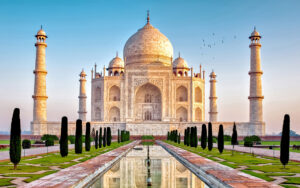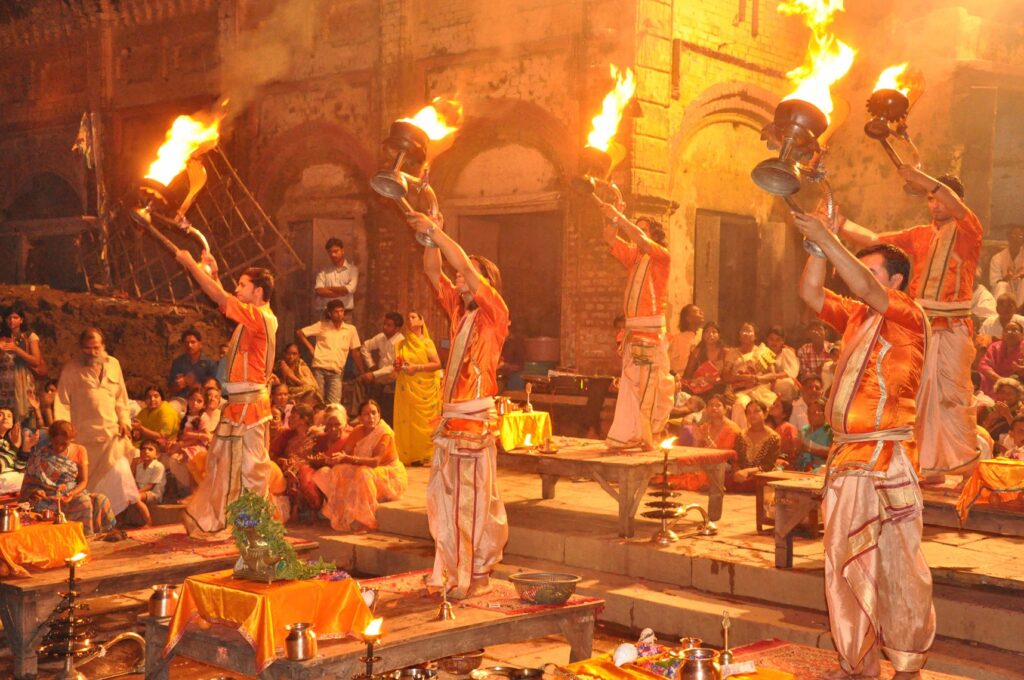Importance of heritage tourism in India
–by Soham Mitra
–Reading Time – 13 min Approx
If one travels around the world exploring the highly developed modern nations, one would for sure be astounded by the technological innovations achieved by the countries. Whether it is their prolific historical past, political steadfastness or socio-economic progress, there are many factors that one looks up to as ideal for wholesome human conduct. Logically enough, the prospects of travel and tourism in such nations are booming contributing significantly to their economic development. With India in the focus of our discussion right now, there comes the importance of heritage tourism in India.
 Introduction to importance of heritage tourism in India:
Introduction to importance of heritage tourism in India:
When it comes to India, one might roll out their eyes in disbelief as to what exactly is the poster child of its long-lived heritage? Being probably one of the rare countries possessing such a regional diversity whether in terms of philosophy, language, religion or art, India calls for an intricate introspection when it comes to examining the cultural heritage of the country and there comes the powerful tool of nurturing the National Culture through understanding the importance of heritage tourism in India.
One has look into the distant past of the country to make sense of the conglomeration of diverse cultures coexisting in the present-day milieu. By the virtue of inhabiting world’s largest continuing civilization and second largest population, India has been a witness to a continuous influx of people from various parts of the world as well as constant movement within the country paving the way for socio-cultural exchange of tastes and ideas.
Whether it is the old temple ruins of a remote village, towering royal palaces, folklore or regional customs and traditions they are embodiments of the historical legacy of the country serving as key identifiers of a long-inhabited culture leading to the importance of heritage tourism in India.
Keeping in mind India’s rich cultural heritage which acts a key factor for attracting both domestic and international tourists it becomes essential to understand the vast nature of heritage prevailing in the country much of it still lacking identification and recognition.
Scope & importance of Heritage Tourism in India:
 India is house to major world religions with Hinduism being the oldest along with Islam, Christianity, Sikhism, Buddhism and Jainism. India is thronged with in numerous number of temples with varied architectural styles each having a significance of its own. Varanasi (Kashi) in Uttar Pradesh is a city held in deep regard by Hindus for its spiritual significance. The proverb that “death in Varanasi grants liberation to one’s soul” is incredibly famous in India if not worldwide serving as an important factor for many to gather in the city. Travelers who have visited Varanasi often speak of the serenity and divine atmosphere of the city which is responsible for pulling in huge crowds to the place.
India is house to major world religions with Hinduism being the oldest along with Islam, Christianity, Sikhism, Buddhism and Jainism. India is thronged with in numerous number of temples with varied architectural styles each having a significance of its own. Varanasi (Kashi) in Uttar Pradesh is a city held in deep regard by Hindus for its spiritual significance. The proverb that “death in Varanasi grants liberation to one’s soul” is incredibly famous in India if not worldwide serving as an important factor for many to gather in the city. Travelers who have visited Varanasi often speak of the serenity and divine atmosphere of the city which is responsible for pulling in huge crowds to the place.
It would not be wrong to address the Southern part of the country as the cultural-religious hub of India. Whether it is the temples depicting the rich architecture from the Chola Empire, the exquisite rock carvings in Mahabalipuram, Tamil Nadu, the ruins of Vijayanagar kingdom in Hampi or the palaces and museums in Mysore, it is indeed a mammoth task to fathom the vast cultural heritage ingrained in Southern states of India.
If one pines for the taste of royalty, it can be rest assured that Rajasthan will not only fulfil one’s expectations but also overwhelm them with its sheer grandeur and regality. Jaisalmer Hill Fort, Chittorgarh Fort and Amer Fort among various other forts and palaces are guaranteed to be pleasures to the artistic eye by the sheer virtue of their grandness and intricate exquisite marble architecture. Delhi and Lucknow on the other hand thrive with forts and tombs symbolic of the rule of the Mughal Empire. One would deep dive into a mind-boggling adventure if one sits down listing the heritage sites in India given the fact many of them are still lacking heritage recognition.

Impact of Heritage Tourism in India:
Given the variations in the customs and traditions and the philosophy ingrained behind each state of India, heritage tourism is a potential proponent for the upliftment of local economies. Creating opportunities for tourists by the virtue of heritage tourism not only strengthens the importance of preserving heritage sites but also paves the way for diversified economies with each place retaining its unique socio-cultural features. Wouldn’t it be absolutely perfect if unrecognized heritage sites are brought to the public awareness along with setting up local businesses to boost the growth of a remote area? Generation of tourism-based jobs, businesses and conservation of heritage sites are indeed the key benefits of heritage tourism.
 Heritage conservation leads to the sustenance of intangible cultural elements (customs, traditions etc.). Further exposure to the regional arts and crafts supported by appropriate media coverage would help local artists gain recognition and facilitate the growth and revival of dying art forms. The key distinct associations of India with religion, royalty, and heritage along with the existence of 3667 Archaeological Survey of India (ASI) recognized heritage sites propels a significance discourse of individuals jumping into the tourism bandwagon contributing immensely to the country’s economy.
Heritage conservation leads to the sustenance of intangible cultural elements (customs, traditions etc.). Further exposure to the regional arts and crafts supported by appropriate media coverage would help local artists gain recognition and facilitate the growth and revival of dying art forms. The key distinct associations of India with religion, royalty, and heritage along with the existence of 3667 Archaeological Survey of India (ASI) recognized heritage sites propels a significance discourse of individuals jumping into the tourism bandwagon contributing immensely to the country’s economy.
Issues to be addressed to boost Heritage Tourism in India:
The actual picture of heritage tourism persisting India is however a far cry from what it should ideally be, if tapped into its full potential. Due to the vast size of the country, large number of monuments and structures, many in ruins lie scattered all over the country facing severe negligence. Many of them are not entitled heritage status further adding on to their problem of preservation. The absence of proper planning and an integrated approach around heritage sites acts as a sore thumb leading to the loss of charm of the heritage sites.
The growth of rapid encroachment surrounding the areas of tourist interests by local shopkeepers, residents, donors, and decisions of the government in the form of structural constructions and exhibition of items are soaring to the eyes, damaging the visual imagery of the places. Irresponsible behavior owing to lack of civic sense on the parts of the tourists – whether it is littering heritage sites or damaging the heritage structures, are deterrents to the preservation and maintenance of heritage sites.
One cannot help but dive into a state of despair witnessing the sheer degree of pollution caused by harmful gases generated from industrial activities and motor vehicles combined with sewage waste. The change in the colour of the marble of Taj Mahal and the ever-degrading condition of Ganges and Yamuna in various areas are testament to the lack of concrete efforts to curb the situation.

Now what can one really does to improve the condition of heritage tourism given the scarcity of resources at the common man’s hands? Well, nothing really. Sticking to the basics is the only possible way out. There is so much to know, and yet so little awareness pervades amongst the general public that it becomes absolutely necessary to impart information about Indian culture and heritage in schools at the grass root level. Every historical site should have briefed some brief literature about its significance. Unless the law and administrative system of the country comes into full force ensuring safety surrounding the heritage sites, it becomes extremely difficult for them to register into the public consciousness, forget turning into successful tourist economies.
Unscrupulous elements such as snatchers, teasers and terrorists are the limiting forces in this regard. Deployment of necessary security personnel at such places would help tackle the safety considerations. Small replicas of heritage sites help in ingraining their unique identities in the minds of the visitors. Allocation of funds is a significant consideration when it comes to heritage conservation. Stakeholders at various levels, volunteers and corporate houses need to come forward in this regard. An aggressive marketing formula with regional emphasis needs to be chalked out to bring the heritage sites into the limelight. Most essential to the efficient operation of heritage tourism in India is the sense of strong commitment on the parts of the public and private entities towards the cause.
–by Soham Mitra



Detailed research, good read!
Thank you